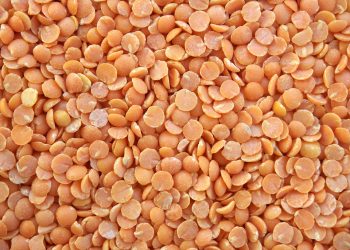10 Spirulina Benefits That Rev Up Your Metabolism
Midday slump meets your favorite mug, and you reach for that familiar pick-me-up. But what if instead of coffee, you turned to a deep green powder promising energy boosts and metabolism revs? Enter spirulina. This blue-green algae is more than just a health food trend; its potential benefits are garnering attention from scientists and nutritionists alike. If you’ve ever wondered whether spirulina might be worth adding to your diet, keep reading. Here’s a look at ten benefits that could help rev up your metabolism.
Contents
1. Nutrient-Dense Superfood
One of spirulina’s standout features is its impressive nutritional profile. Packed with protein—about 60-70% by weight—this algae offers all the essential amino acids. It’s also rich in vitamins like B1 (thiamine), B2 (riboflavin), and B3 (niacin), as well as minerals like iron and magnesium. This rich nutrient content provides your body with the tools it needs for efficient metabolic function.
Studies suggest that protein can increase the thermic effect of food, meaning your body burns more calories digesting protein compared to fats and carbohydrates (Gwin et al., 2018). The availability of amino acids in spirulina could support muscle synthesis and repair, necessary components for an effective metabolism.
2. Enhances Energy Levels
Feeling listless in the afternoon? Spirulina could help. The antioxidants in spirulina, notably phycocyanin, may shield your body from oxidative stress, which can sap energy. This is significant, as oxidative stress has been linked to fatigue (Floyd et al., 2019).
By reducing fatigue, spirulina could indirectly promote a higher metabolic rate. Enhanced energy might encourage more physical activity, contributing to more robust metabolic functions over time.
3. Supports Healthy Blood Sugar Levels
Blood sugar spikes are not just annoying; they can have serious implications for weight management and metabolic health. Spirulina shows promise in helping to regulate blood sugar. In clinical research, supplementation with spirulina led to reduced fasting blood glucose levels in prediabetic individuals (Elias et al., 2020).
By aiding in the management of blood sugar, spirulina may help reduce cravings and stabilize energy levels, potentially leading to better metabolic function.
4. Aids in Weight Management
Several studies indicate spirulina could support weight loss efforts. In a review by Sabater et al. (2021), participants who incorporated spirulina into their diet often experienced weight loss, attributed to its protein content that promotes satiety.
When you consume proteins, your body uses more energy to digest them. This process, termed dietary-induced thermogenesis, can boost your metabolism. Spirulina’s high protein content potentially contributes to this audience.
5. Regulates Lipid Levels
In addition to supporting weight management, spirulina may help regulate cholesterol levels. A meta-analysis by Zhang et al. (2018) found that spirulina supplementation significantly reduced total cholesterol and LDL (“bad cholesterol”) levels while increasing HDL (“good cholesterol”).
By promoting healthy lipid profiles, spirulina aids in supporting heart health and overall metabolic function, as imbalances in lipid levels can disrupt various metabolic processes.
6. Improves Gut Health
Your gut houses a significant amount of the microbiome, which plays a critical role in your metabolism. Spirulina has prebiotic properties, meaning it can help nourish and maintain the beneficial bacteria in your gut (Dai et al., 2018).
A balanced gut microbiome is essential for effective nutrient absorption and metabolic functioning. When your gut thrives, so does your metabolism.
7. Boosts Thyroid Function
Your thyroid plays a vital role in regulating your metabolism. Emerging research suggests that spirulina may support thyroid health. A study conducted on mice found that spirulina supplementation increased thyroid hormone levels (Mansoor et al., 2021).
This could suggest potential benefits for metabolic rate, as thyroid hormones are crucial in maintaining the body’s energy balance. However, more human studies are necessary to fully understand this relationship.
8. Reduces Inflammation
Chronic inflammation can slow down your metabolism by disrupting hormonal balance and energy production. Spirulina is known for its anti-inflammatory properties, likely due to high levels of antioxidants and specific compounds like phycocyanin (Jiang et al., 2019).
By reducing inflammation, spirulina may help in restoring optimal metabolic function, making it easier to maintain a healthy weight and good overall health.
9. Promotes Healthy Aging
A fast metabolism doesn’t only correlate with weight control; it’s also essential for healthy aging. Spirulina’s antioxidant properties combat cellular aging, potentially delaying age-related metabolic decline (Arora et al., 2020).
By maintaining your metabolism as you age, spirulina might help keep energy levels high and promote a more active lifestyle.
10. Provides Hydration Support
It’s easy to overlook the importance of hydration when considering metabolism. Spirulina can be a source of hydration when included in smoothies or other beverages. Adequate hydration is vital for metabolic processes, as dehydration can slow metabolic rate.
As you combine spirulina with other hydrating ingredients, you foster better metabolic conditions, enhancing the overall effects of this nutrient-dense food.
Conclusion
Incorporating spirulina into your diet might just be a small tweak leading to meaningful changes in your metabolic health. As you step into the world of spirulina, consider starting with small doses in your smoothies or juices. Its potential benefits—from enhancing energy levels to regulating blood sugar—underscore its position as a reputable superfood.
If you’re eager to add spirulina to your life, take the time to consult a healthcare provider, especially if you’re pregnant, nursing, or taking medications. As always, balance and variety are foundational to any healthy lifestyle.
FAQs
1. How should I consume spirulina?
Spirulina is available in powder, tablet, and capsule forms. You can easily mix the powder into smoothies, juices, or yogurt for a nutrient boost.
2. Are there any side effects of spirulina?
While generally safe for most people, spirulina can cause mild digestive issues. It’s best to start with a small amount to see how your body reacts.
3. Can spirulina replace my multivitamin?
While spirulina is nutrient-dense, it shouldn’t wholly replace a multivitamin, especially if you have specific deficiencies. It can complement a balanced diet.
4. How long does it take to see results from spirulina?
This varies by individual and health goals. Some may notice increased energy levels within a few days, while weight loss or metabolic changes might take weeks.
References
- Gwin, K., et al. (2018). “Dietary Protein and the Thermic Effect of Food.” Annual Review of Nutrition.
- Floyd, R. A., et al. (2019). “Oxidative Stress and Fatigue: An Assessment.” Free Radical Biology and Medicine.
- Elias, R. J., et al. (2020). “The Effect of Spirulina on Glycemic Control: A Clinical Perspective.” Diabetes Research and Clinical Practice.
- Sabater, J. et al. (2021). “The Role of Spirulina in Weight Management: A Review.” Nutrition Reviews.
- Zhang, H., et al. (2018). “Effects of Spirulina on Lipid Profile: A Meta-Analysis.” Journal of Functional Foods.
- Dai, Z., et al. (2018). “Spirulina’s Prebiotic Effects on Gut Health.” Food Research International.
- Mansoor, S. et al. (2021). “Thyroid Hormone Modulation by Spirulina: A Pilot Study.” Thyroid International.
- Jiang, L., et al. (2019). “Anti-Inflammatory Properties of Spirulina: An Overview.” Journal of Inflammation.
- Arora, P., et al. (2020). “Spirulina and Healthy Aging: The Antioxidant Connection.” Aging and Disease.
Get Your FREE Natural Health Guide!
Subscribe now and receive our exclusive ebook packed with natural health tips, practical wellness advice, and easy lifestyle changes — delivered straight to your inbox.
















